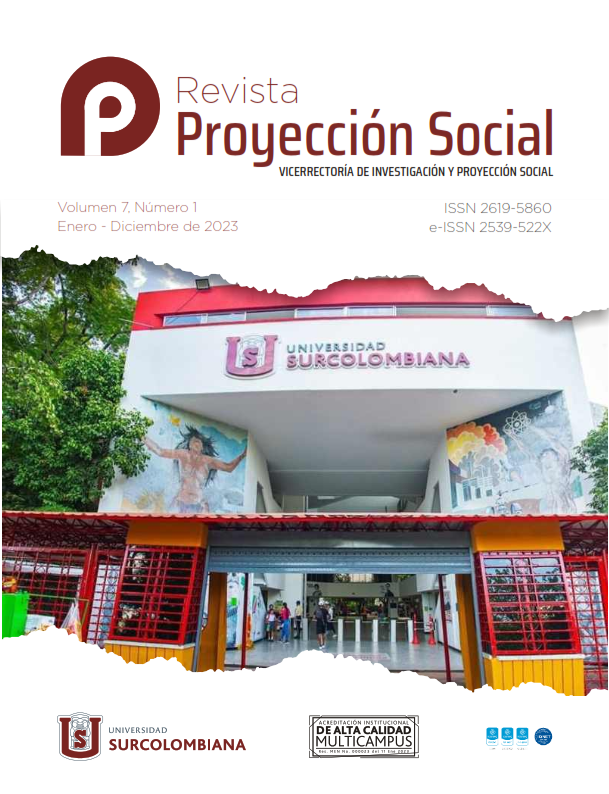Entrepreneurship and Employability of Graduates of the Business Administration Program, La Plata Campus compared to other campuses of the Universidad Surcolombiana Graduate survey period 2015-2023/1 and comparison with 2018 survey
Encuesta a graduados periodo 2015-2023/1 y comparación con encuesta 2018
##plugins.themes.bootstrap3.article.main##
This article analyzes different variables related to the employability and entrepreneurship of the graduates of the Business Administration program at Campus La Plata and compares it with results obtained in the other campuses, of the South Colombian university where the program is offered, for those who are they graduated in the period 2015 to 2023/1. Similarly, in the case of La Plata, the results obtained in research carried out in 2018 are compared.
For this research, a number of graduates of 1,322 was taken as the total population, from a database provided by the Business Administration program, with a cut-off date of May 2, 2023. This database was divided into five groups. thus: La Plata, Garzón, Pitalito, Neiva Day and Neiva Night, to which a survey that had been used in the 2018 study was applied and questions directly related to courses and degree modality for entrepreneurship were added. In addition of visits to graduates to complement the research.
Graduates in this study period have been able to demonstrate an important change in the construction of entrepreneurship ecosystems and the university case, of a culture of entrepreneurship. Thus, at the national level, regulations have been issued that promote this culture, such as the entrepreneurship law in 2020, CONPES 4011 and in the departmental field the issuance of the Public Policy for Entrepreneurship, Entrepreneurship, and Innovation in 2021. Also, within of the Surcolombiana University, the creation of the Entrepreneurship and Innovation Center, the CESPOSUR Research Center, and the incorporation of the
degree modality for entrepreneurship in four of the seven faculties of the university.
Despite all these efforts, the level of businessmen or entrepreneurs continues to be low in relation to the number of graduates, however, there is beginning to be more interest in courses, competitions, and the entrepreneurship degree modality.
Downloads
##plugins.themes.bootstrap3.article.details##
(CPC), Consejo Privado de Competitividad. (2022). Informe Nacional de Competitividad 2021-2022. Obtenido de https://compite.com.co/informe/informe-nacional-decompetitividad-2021-2022/
Bernal, C. A. (2006). Metodología de la Investigación. México: Pearson educatión. Camara de Comercio del Huila. (2019). Guia para el mejoramiento de la competitividad del Huila. Neiva.
Colombia, C. d. (26 de enero de 2006). Ley de fomento a la cultura del emprendimiento. Bogotá. Obtenido de https://www.funcionpublica.gov.co/eva/gestornormativo/norma.php?i=18924
Colombia, C. d. (2020). LEY DE IMPULSO AL EMPRENDIMIENTO EN COLOMBIA. Obtenido de chrome-extension://efaidnbm
nnnibpcajpcglclefindmkaj/https://www.apccolombia.gov. co/sites/default/files/2022-05/LEY%202069%20DE%202020.
Departamento Administrativo Nacional de Estadisticas. (2023). Gran Encuesta Integrada de Hogares (GEIH) 2023. Obtenido
de chrome-extension://efaidnbmnnnibpcajpcglclefindm kaj/https://www.dane.gov.co/files/operaciones/GEIH/bolGEIHEISS-mar-may2023.pdf



